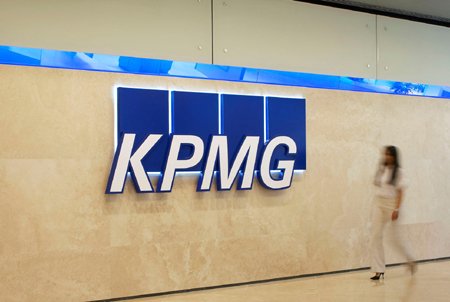UK BUILDING SOCIETIES HIT ALL TIME HIGH RESERVES AND PLAY CORE ROLE SUPPORTING UK HOUSING MARKET RECOVERY, SAYS KPMG REPORT
Published by Gbaf News
Posted on October 1, 2014
4 min readLast updated: January 22, 2026

Published by Gbaf News
Posted on October 1, 2014
4 min readLast updated: January 22, 2026

• Building societies are core to UK housing market recovery, advancing over 25% of UK mortgages
• Sector enjoys strong reporting season and a confident outlook, as sector reserves hit an all-time high of £13.7bn
• However the potential impact of a number of longer term challenges face the sector, including future hikes in the Bank of England base rate, leverage ratio and the availability of fresh capital
UK building societies enjoyed a strong annual reporting season as the sector looks forward to a more confident outlook. However, amid the positive signs, the sector needs to tackle a number of longer term challenges, according to a report by professional services firm, KPMG.
The latest Building Societies Database, which analyses the full-year results of the UK’s 45 building societies, painted a picture of a sector that has returned to growth. 35 societies saw a boost in pre-tax profits, while 32 increased their total assets, totalling £316.2bn, an increase of 0.95% from 2013 figures. If the impact of Nationwide, the largest society in the sector, is excluded, sector total assets grew by £3.8bn or 3.1%.
Sector reserves also increased to an all-time high of £13.7bn, an increase of 10% from 2013 figures, reinforcing the sector’s ability to meet the growing demand for mortgages resulting from the recovery in the housing market.
The report revealed that building societies played a pivotal role supporting the recovery of the UK housing market. The sector advanced £44.2bn in gross mortgage advances, amounting to 25.1% of the UK’s mortgage lending, a sizable increase from £38.8bn or 13.9% in 2013.
Richard Gabbertas, financial services partner at KPMG said, “Overall, building societies are in good shape internally and are in a relatively strong position in the marketplace.

UK Building Societies Hit All Time High Reserves And Play Core Role Supporting UK Housing Market Recovery, Says KPMG Report
“Unlike the banking sector where we have seen growth in shadow banking initiatives, there has so far been little evidence of significant new entrants to the mortgage market, or talk of new innovative technology-based business models. Furthermore, regulatory capital pressures on banks are also reducing some competitive pressure on societies.
“Building societies have an important role to play in easing the housing crisis, which our own research with Shelter shows is affecting all but society’s wealthiest. The housing crisis has been caused by a complex bundle of factors but our report shows the building society sector is stepping up to support on the lending side.”
As a sector founded upon the bedrock of funding from customer deposits in the form of shares, the latest results saw a welcome boost in customer deposits, with shares increasing 3.2% since 2013 to £227.5bn – representing 19% of the total UK savings market.
Commenting on the outlook on deposits, Simon Walker, financial services partner at KPMG said, “Although building societies continue to attract savers’ monies, there is a real challenge ahead as the new ISA allowance of £15,000, coupled with low interest rates, is likely to tempt savers to move their funds out of building societies into equities.
“Since societies operate under a mutual model, this also poses a significant challenge to growth as they cannot raise fresh capital other than through retained profits.”
Richard Gabbertas, concluded, “This year’s results reflect the sector’s continuing return to growth following the financial crisis and its continued position as a great choice for consumers. The strong financials are testament to the resilience of the sector’s traditional business model, which customers continue to trust. However, there are challenges ahead that the sector must prepare for.
”Building societies are particularly sensitive to increases in interest rates given their business models are built around mortgage lending. Hikes in the unprecedented low interest base rate may flow through into increased arrears, repossessions and impairment provisions.
“As a sector, societies are generally well capitalised and are relatively untroubled by the current Basel leverage ratio of 3%. However, regulators across the world are taking a view that for large banks, a higher leverage ratio is required with higher capital levels too. There is a possibility that these higher hurdles will become more widespread and first be applied to larger UK banks, and then ultimately to smaller ones including building societies.
“For now, there is little short to medium term risk of mortgage or savings margins being eroded by a wave of new entrants, as they were between 2003 and 2008. However, societies must be prepared to tackle the unprecedented mid to long-term challenges on the horizon.”
Explore more articles in the Top Stories category











